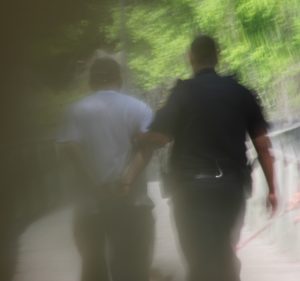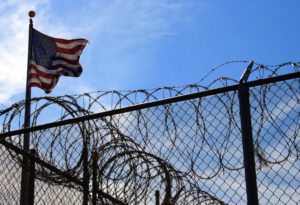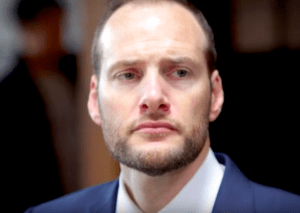America’s Criminal Injustice System
In this age of stop-and-frisk, racial profiling, mandatory sentencing, the death penalty, life without parole and execution-by-cop, I—a private eye for defense lawyers—can't defend anybody. D.C.Atty / CC-BY-2.0
1
2
3
D.C.Atty / CC-BY-2.0
1
2
3
Once upon a time, I was a journalist, covering war in Indochina, Central America, and the Middle East. I made it my job to write about the victims of war, the “civilian casualties.” To me, they were hardly “collateral damage,” that bloodless term the military persuaded journalists to adopt. To me, they were the center of war. Now, I work at home and I’m a private eye — or P.I. to you. I work mostly on homicide cases for defense lawyers on the mean streets of Oakland, California, one of America’s murder capitals.
Some days, Oakland feels like Saigon, Tegucigalpa, or Gaza. There’s the deception of daily life and the silent routine of dread punctured by out-of-the blue mayhem. Oakland’s poor neighborhoods are a war zone whose violence can even explode onto streets made rich overnight by the tech boom. Any quiet day, you can drive down San Pablo Avenue past St. Columba Catholic Church, where a thicket of white crosses, one for every Oaklander killed by gun violence, year by year, fills its front yard.
Whenever I tell people I’m a private eye, they ask: Do you get innocent people off death row? Or: Can you follow my ex around? Or: What kind of gun do you carry?
I always disappoint them. Yes, I do defend people against the death penalty, but so far all my defendants have probably been guilty — of something. (Often, I can only guess what.) While keeping them off death row may absolve me of being an accessory after the fact to murder, it also regularly condemns my defendants to life in prison until they die there.
And I find spying on people their ex-spouses fantasize about killing much sleazier than actual murder. Finally, I’m a good shot, but I don’t carry a gun because that’s the best way to get shot.
I work on the low-profile cases: poor people charged with murder, burglary, or robbery, who don’t have the money for a lawyer or their own P.I. (I’m paid, if you can call it that, by the state.)
Then people invariably want to know: How can you help defend a murderer? The law school answer is: the constitution guarantees everyone a fair trial.
For me, however, if it’s a death penalty case, it’s simple: I’m against the death penalty no matter what the accused did (or didn’t do). But in this age of stop and frisk, racial profiling, mandatory sentencing, the death penalty, and life without parole, not to mention execution-by-cop, the real answer is: I can’t. Defend anybody, that is. Not really.
I’m just a tiny cog in America’s vast Criminal Injustice System. One of the lawyers I work for sometimes calls himself “just a potted plant.” My defendants may be guilty — but seldom of what they are charged with. They are rarely convicted of what they actually did and are never sentenced fairly.
“He Snapped”
One day recently, I was getting ready to hit the Oakland streets in search of a witness to a murder when I found in my email Justice Sonia Sotomayor’s dissent in the Supreme Court Case of Utah v. Strieff. It had been forwarded to me by a psychologist with whom I once worked on a death penalty case.
Anyone lulled into thinking the new coalition of liberals and conservatives who hope to reform the criminal justice system will actually get somewhere should read Strieff. The facts are the following: a Salt Lake City cop was watching a home rumored to house methamphetamine dealers. When Edward Joseph Strieff left the house, the cop stopped him, questioned him, and checked his record. When the cop found a warrant for an unpaid parking ticket, he searched Strieff, found meth in his pockets, and arrested him for possession of drugs. In Strieff and other cases leading up to it, the Supreme Court has now decreed that evidence gathered in an illegal search isn’t “the fruit of the poisoned tree” as Justice Felix Frankfurter put it in 1939, and so no longer must be suppressed. Even though gathered illegally, evidence can be used at trial against a defendant.
In short, stop-and-frisk policing and racial profiling, key targets of the new civil rights movement, just got a stamp of approval from the highest court in the land.
Justices Ruth Bader Ginsburg and Elena Kagan also dissented. But it was Sotomayor who sounded the alarm in an opinion evoking nothing less than James Baldwin’s The Fire Next Time and adding quotations from W.E.B. Du Bois, Ta-Nehisi Coates, and Michelle Alexander for good measure.
She wrote:
“The Court today holds that the discovery of a warrant for an unpaid parking ticket will forgive a police officer’s violation of your Fourth Amendment rights. Do not be soothed by the opinion’s technical language: this case allows the police to stop you on the street, demand your identification, and check it for outstanding traffic warrants — even if you are doing nothing wrong. If the officer discovers a warrant for a fine you forgot to pay, courts will now excuse his illegal stop and will admit into evidence anything he happens to find by searching you after arresting you on the warrant. Because the Fourth Amendment should prohibit, not permit, such misconduct, I dissent.”
And she concluded:
“This case tells everyone, white and black, guilty and innocent, that an officer can verify your legal status at any time. It says that your body is subject to invasion while courts excuse the violation of your rights. It implies that you are not a citizen of a democracy but the subject of a carceral state, just waiting to be catalogued.
“We must not pretend that the countless people who are routinely targeted by police are ‘isolated.’ They are the canaries in the coal mine whose deaths, civil and literal, warn us that no one can breathe in this atmosphere.”
Independent journalism is under threat and overshadowed by heavily funded mainstream media.
You can help level the playing field. Become a member.
Your tax-deductible contribution keeps us digging beneath the headlines to give you thought-provoking, investigative reporting and analysis that unearths what's really happening- without compromise.
Give today to support our courageous, independent journalists.







You need to be a supporter to comment.
There are currently no responses to this article.
Be the first to respond.